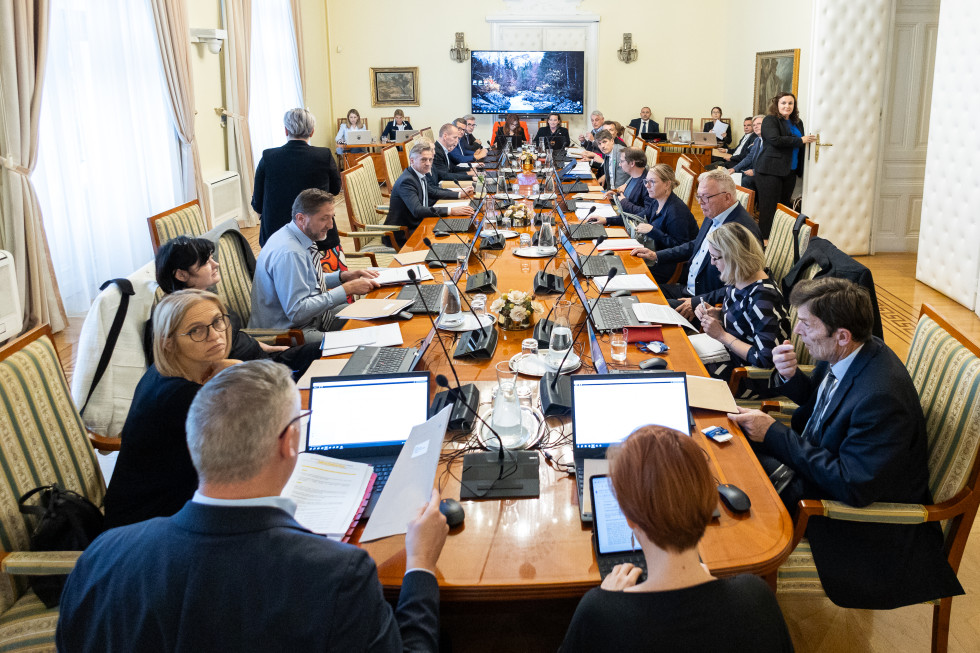125th regular session of the Government of the Republic of Slovenia
The Government today approved the proposed new amendments to the Payment Services, Services for Issuing Electronic Money and Payment Systems Act to improve business and consumer access to bank payment accounts and the transparency of bank operations when opening or closing an account. The amendments will also ensure better consumer information on the right to a payment account with basic features and the greater accessibility of these accounts. In recent years, consumers and businesses have experienced more difficulties in opening payment (transaction) accounts with banks due to various factors, including requisite regulatory bank measures to reduce risks related to money laundering and the financing of terrorism. Some companies and consumers are therefore unable to open a payment account that they might need for business or personal life with a bank, which is free to exercise its own discretion in this regard. To improve the current situation, the new amendments to the Payment Services, Services for Issuing Electronic Money and Payment Systems Act include several proposals with the aim of improving business and consumer access to opening or keeping payment accounts with banks and ensuring better consumer information on the right to a payment account with basic features.
The Government today adopted the proposed amendments to the Recovery and Resilience Plan (the RRP). The proposal contains a minor change to the plan, mainly relating to the method of implementing six measures. As agreed with the European Commission (EC), the Slovenian Recovery and Resilience Office will submit the proposed amendments for formal harmonisation and approval to Brussels by Monday, 21 October 2024. With the aim of ensuring the smooth implementation of the RRP and the submission of future requests for payment, the proposed amendments address minor deviations in six measures identified in the course of their implementation. The milestones and targets of these measures have been amended so as to retain their core objective. The changes refer mostly to their method of implementation.
In parallel with the submission of proposed amendments, a detailed review of the implementation of the RRP as a whole is underway. The Government is expected to consider the ministries’ proposals regarding the continued implementation of measures that, due to objective circumstances, are no longer tenable in accordance with the Council Implementing Decision on the approval of the assessment of the RRP for Slovenia. This could significantly impact Slovenia’s performance in achieving the targets and milestones and consequently in ensuring the available funding from Brussels under the Recovery and Resilience Facility. If the Government and the EC conclude in informal talks that optimising implementation requires another amendment to the plan, the Government will submit an official proposal to that effect. Any amendments proposed by a country cannot represent a significant deviation from the initial RRP agreed between Slovenia and Brussels in July 2021.
The Government of the Republic of Slovenia took note of the initialled agreement on the Act on the Common Foundations of the Salary System in the Public Sector and authorised the Minister of Public Administration, Franc Props, and the Minister of Finance, Klemen Boštjančič, to sign the relevant agreement. The Government and representative trade unions have agreed that, if the Collective Agreement for Public Sector and the sectoral collective agreements classifying the positions of at least four salary groups into salary grades are not concluded by 15 November 2024, the Government will, by 22 November 2024 at the latest, initiate an urgent procedure proposing the repeal of the Act on the Common Foundations of the Salary System in the Public Sector (the ZSTSPJS) and apply the legal bases governing the salary system in the public sector valid on the day before the ZSTSPJS entered into force, unless an agreement is reached between social partners on postponing the application of the ZSTSPJS. In the event of a strike resulting from a violation of this agreement or failure to adopt the Act that would repeal the ZSTSPJS or postpose its application, the workers on strike would be entitled to salary compensation in the amount that they would receive if they worked.


